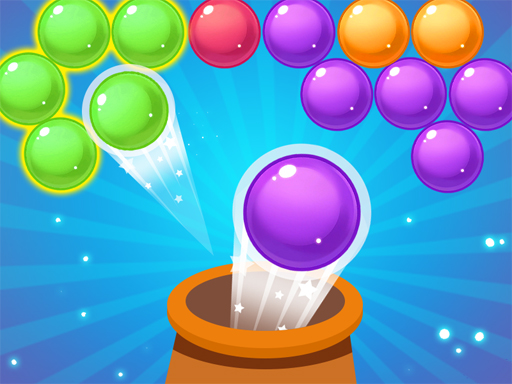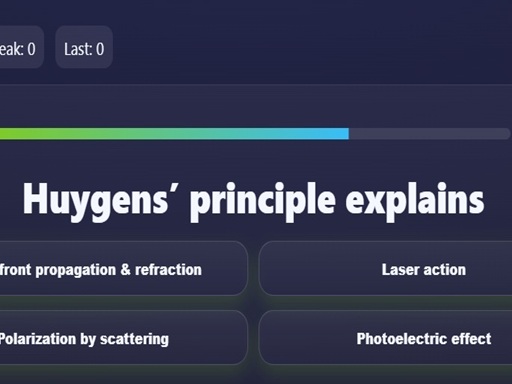The Chip Conundrum
About The Chip Conundrum
Oh my gosh, you are not going to believe what I just stumbled upon. Seriously, put down whatever you're doing, because I have to tell you about this game. It's called *The Chip Conundrum*, and I swear, it's like someone took all the things I love about intricate puzzle games, mixed them with a dash of deep, satisfying logic, and then sprinkled in some truly breathtaking world-building. I haven't been this utterly absorbed in something since… well, I can't even remember the last time a game just completely swallowed my sense of time like this one has.
You know how I've always been drawn to games that make you feel genuinely smart, not just by testing your reflexes, but by challenging your actual problem-solving abilities? Games where you have to understand the underlying mechanics, where every piece you place has a purpose, and where the "aha!" moment isn't just a fleeting thought, but a full-body experience? *The Chip Conundrum* is exactly that, but dialed up to eleven. It’s not just a puzzle game; it’s an exploration of a dying world, and your only tools are your wits and an understanding of how energy flows.
Imagine this: you awaken in a vast, ancient, but technologically advanced underground city called Aethelburg. It's magnificent, truly, with towering structures that glow with a faint, internal light, but everything is… quiet. Too quiet. The central AI, The Core, which once managed everything, is failing, and with it, the entire city is slowly going dark. Your role, you discover, is that of a Resonance Engineer, one of the last remaining individuals who can actually interface with and understand the city's intricate "Logic Lattices"—essentially, its gigantic, city-spanning circuit boards.
What’s fascinating is how they’ve taken something as potentially dry as semiconductor physics and turned it into this incredibly intuitive, almost magical system. You’re not just answering questions; you’re *building* solutions. Each district of Aethelburg has its own unique set of problems, its own failing power conduits or communication arrays, and each one presents itself as a colossal, three-dimensional circuit puzzle. You walk into these massive chambers, and the air hums with latent energy, the walls themselves etched with glowing pathways and vacant sockets, just waiting for your touch.
You start with the basics, of course. You learn about diodes, these elegant little components that only let energy flow in one direction, like a one-way valve for electrons. Then come the transistors, which are just mind-blowing in their simplicity and power – acting like tiny switches or amplifiers. The brilliant thing about this is that the game doesn't just tell you what they do; it makes you *feel* it. You can almost see the electrons, rendered as these shimmering, golden streams, moving through the pathways you construct. You place a diode, and you see the stream hit it, either passing through or being utterly blocked, and you immediately understand its function. It’s not abstract knowledge; it’s tangible.
The real magic happens when you start combining these elements into logic gates. AND gates, OR gates, XOR gates… honestly, I remember learning about these in school, and it always felt so theoretical. But here, you’re literally building them, seeing two separate energy streams combine to activate a single output, or one stream diverting another. It's like a visual symphony of cause and effect. You’ll find yourself standing in front of a colossal, inactive mechanism, maybe a broken water purification system for an entire district, and you have to trace back the power flow, identify the faulty logic, and then meticulously, almost surgically, reconstruct the pathway.
The game gives you a set of tools – a kind of holographic projector that lets you conjure and place these components, and a scanner that highlights energy flow and potential faults. You’re not just clicking on a grid; you’re physically moving through these spaces, rotating components in your hand, snapping them into place with a satisfying *thunk* that vibrates through your controller. The sound design is just incredible, by the way. You hear the faint, desperate hum of the failing systems, the sharp *crack* of an overload if you make a mistake, and then that glorious, deep *thrum* when a circuit finally stabilizes and power surges through, bringing a section of the city back to life.
There's something incredibly satisfying about watching those golden energy streams flow exactly as you intended, seeing a section of Aethelburg's lights flicker back on, or a giant, dormant mechanism whirring to life. That moment when a complex strategy finally clicks into place, after maybe an hour of trial and error, of tracing lines and testing theories, is just pure euphoria. You’ll lean forward in your chair, holding your breath as you connect the final piece, waiting to see if your solution holds. And when it does? Man, it’s a rush. It’s like you’ve just solved a cosmic riddle and saved a piece of the universe.
What I love about games like this is how they gently guide you without holding your hand. The initial puzzles are simple enough to teach you the language of the circuits, but then they quickly escalate. You’ll encounter challenges where you need to manage heat dissipation, prevent energy surges, or even create timed sequences using capacitors and resistors to activate different parts of a system in a specific order. It’s not just about getting power from A to B; it’s about *controlling* that power, shaping it, making it dance to your tune.
In my experience, the best moments come when you’re utterly stumped. You’ve tried every combination, every angle, and you just can’t see the solution. You walk away, maybe grab a drink, and then something in the back of your mind clicks. You realize you were thinking too linearly, or you missed a subtle environmental clue. You rush back, heart pounding a little, and try that one wild idea you just had, and suddenly, the entire puzzle unravels before you. That’s when *The Chip Conundrum* truly shines. It respects your intelligence, and it rewards perseverance in a way that few games manage.
The narrative, too, is surprisingly compelling for a puzzle game. As you restore more and more of the city’s systems, you uncover fragments of its history, messages from the original Resonance Engineers, and hints about what caused The Core to fail. This makes me wonder about the deeper implications, about the relationship between technology and life, and the fragility of even the most advanced systems. It’s not just about fixing circuits; it’s about understanding a civilization through its technology.
You can almost feel the weight of the holographic projector in your hand, hear the soft *whir* as you select a new component, and see the intricate network of glowing lines spreading out before you. The visual spectacle is understated but incredibly effective. The way the light from the active circuits reflects off the ancient metal walls, the subtle shimmer of the energy streams, the way a previously dark section of the city slowly brightens as you bring it back online… it’s just beautiful. It evokes a sense of wonder, a genuine curiosity about what new, complex system you'll encounter next.
Honestly, if you're someone who gets a thrill from solving complex problems, from seeing intricate systems come to life, and from feeling like you're truly making a difference in a compelling world, you absolutely have to try *The Chip Conundrum*. It’s more than a game; it’s an intellectual adventure, a journey into the heart of logic and energy. Just wait until you encounter the multi-layered puzzles where you have to activate different sections of a giant chip simultaneously, each with its own unique power requirements and environmental hazards. The real magic happens when you realize you’re not just playing a game; you’re becoming a master of a lost art, a true architect of light and power. It's an experience that doesn't just inform; it enthralls, and it makes you feel like you're missing out on something incredible if you don't dive in yourself.
You know how I've always been drawn to games that make you feel genuinely smart, not just by testing your reflexes, but by challenging your actual problem-solving abilities? Games where you have to understand the underlying mechanics, where every piece you place has a purpose, and where the "aha!" moment isn't just a fleeting thought, but a full-body experience? *The Chip Conundrum* is exactly that, but dialed up to eleven. It’s not just a puzzle game; it’s an exploration of a dying world, and your only tools are your wits and an understanding of how energy flows.
Imagine this: you awaken in a vast, ancient, but technologically advanced underground city called Aethelburg. It's magnificent, truly, with towering structures that glow with a faint, internal light, but everything is… quiet. Too quiet. The central AI, The Core, which once managed everything, is failing, and with it, the entire city is slowly going dark. Your role, you discover, is that of a Resonance Engineer, one of the last remaining individuals who can actually interface with and understand the city's intricate "Logic Lattices"—essentially, its gigantic, city-spanning circuit boards.
What’s fascinating is how they’ve taken something as potentially dry as semiconductor physics and turned it into this incredibly intuitive, almost magical system. You’re not just answering questions; you’re *building* solutions. Each district of Aethelburg has its own unique set of problems, its own failing power conduits or communication arrays, and each one presents itself as a colossal, three-dimensional circuit puzzle. You walk into these massive chambers, and the air hums with latent energy, the walls themselves etched with glowing pathways and vacant sockets, just waiting for your touch.
You start with the basics, of course. You learn about diodes, these elegant little components that only let energy flow in one direction, like a one-way valve for electrons. Then come the transistors, which are just mind-blowing in their simplicity and power – acting like tiny switches or amplifiers. The brilliant thing about this is that the game doesn't just tell you what they do; it makes you *feel* it. You can almost see the electrons, rendered as these shimmering, golden streams, moving through the pathways you construct. You place a diode, and you see the stream hit it, either passing through or being utterly blocked, and you immediately understand its function. It’s not abstract knowledge; it’s tangible.
The real magic happens when you start combining these elements into logic gates. AND gates, OR gates, XOR gates… honestly, I remember learning about these in school, and it always felt so theoretical. But here, you’re literally building them, seeing two separate energy streams combine to activate a single output, or one stream diverting another. It's like a visual symphony of cause and effect. You’ll find yourself standing in front of a colossal, inactive mechanism, maybe a broken water purification system for an entire district, and you have to trace back the power flow, identify the faulty logic, and then meticulously, almost surgically, reconstruct the pathway.
The game gives you a set of tools – a kind of holographic projector that lets you conjure and place these components, and a scanner that highlights energy flow and potential faults. You’re not just clicking on a grid; you’re physically moving through these spaces, rotating components in your hand, snapping them into place with a satisfying *thunk* that vibrates through your controller. The sound design is just incredible, by the way. You hear the faint, desperate hum of the failing systems, the sharp *crack* of an overload if you make a mistake, and then that glorious, deep *thrum* when a circuit finally stabilizes and power surges through, bringing a section of the city back to life.
There's something incredibly satisfying about watching those golden energy streams flow exactly as you intended, seeing a section of Aethelburg's lights flicker back on, or a giant, dormant mechanism whirring to life. That moment when a complex strategy finally clicks into place, after maybe an hour of trial and error, of tracing lines and testing theories, is just pure euphoria. You’ll lean forward in your chair, holding your breath as you connect the final piece, waiting to see if your solution holds. And when it does? Man, it’s a rush. It’s like you’ve just solved a cosmic riddle and saved a piece of the universe.
What I love about games like this is how they gently guide you without holding your hand. The initial puzzles are simple enough to teach you the language of the circuits, but then they quickly escalate. You’ll encounter challenges where you need to manage heat dissipation, prevent energy surges, or even create timed sequences using capacitors and resistors to activate different parts of a system in a specific order. It’s not just about getting power from A to B; it’s about *controlling* that power, shaping it, making it dance to your tune.
In my experience, the best moments come when you’re utterly stumped. You’ve tried every combination, every angle, and you just can’t see the solution. You walk away, maybe grab a drink, and then something in the back of your mind clicks. You realize you were thinking too linearly, or you missed a subtle environmental clue. You rush back, heart pounding a little, and try that one wild idea you just had, and suddenly, the entire puzzle unravels before you. That’s when *The Chip Conundrum* truly shines. It respects your intelligence, and it rewards perseverance in a way that few games manage.
The narrative, too, is surprisingly compelling for a puzzle game. As you restore more and more of the city’s systems, you uncover fragments of its history, messages from the original Resonance Engineers, and hints about what caused The Core to fail. This makes me wonder about the deeper implications, about the relationship between technology and life, and the fragility of even the most advanced systems. It’s not just about fixing circuits; it’s about understanding a civilization through its technology.
You can almost feel the weight of the holographic projector in your hand, hear the soft *whir* as you select a new component, and see the intricate network of glowing lines spreading out before you. The visual spectacle is understated but incredibly effective. The way the light from the active circuits reflects off the ancient metal walls, the subtle shimmer of the energy streams, the way a previously dark section of the city slowly brightens as you bring it back online… it’s just beautiful. It evokes a sense of wonder, a genuine curiosity about what new, complex system you'll encounter next.
Honestly, if you're someone who gets a thrill from solving complex problems, from seeing intricate systems come to life, and from feeling like you're truly making a difference in a compelling world, you absolutely have to try *The Chip Conundrum*. It’s more than a game; it’s an intellectual adventure, a journey into the heart of logic and energy. Just wait until you encounter the multi-layered puzzles where you have to activate different sections of a giant chip simultaneously, each with its own unique power requirements and environmental hazards. The real magic happens when you realize you’re not just playing a game; you’re becoming a master of a lost art, a true architect of light and power. It's an experience that doesn't just inform; it enthralls, and it makes you feel like you're missing out on something incredible if you don't dive in yourself.
Enjoy playing The Chip Conundrum online for free on Colosm. This Puzzle game offers amazing gameplay and stunning graphics. No downloads required, play directly in your browser!
How to Play
Choose CORRECT options





Comments
This game is awesome! I love the graphics and gameplay.
One of the best games I've played recently. Highly recommended!